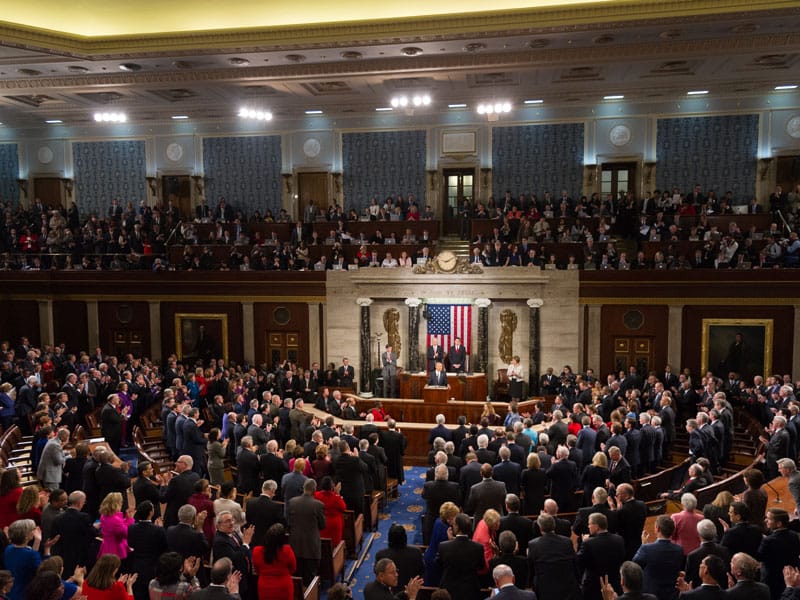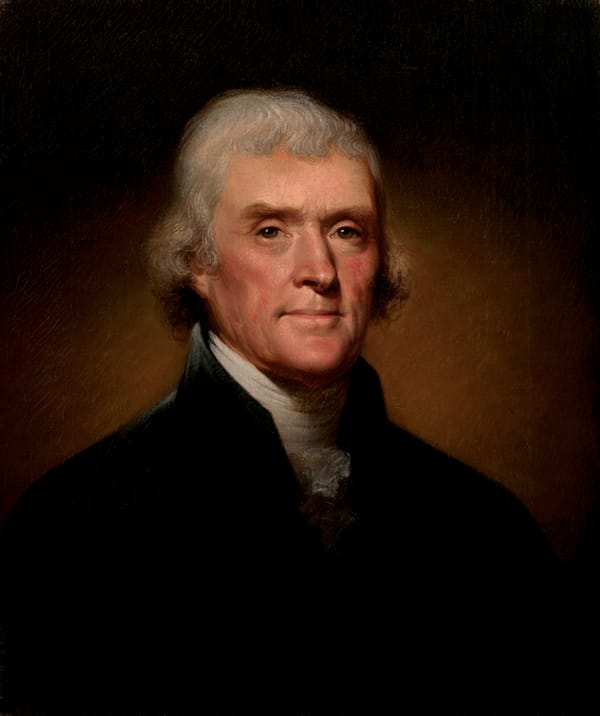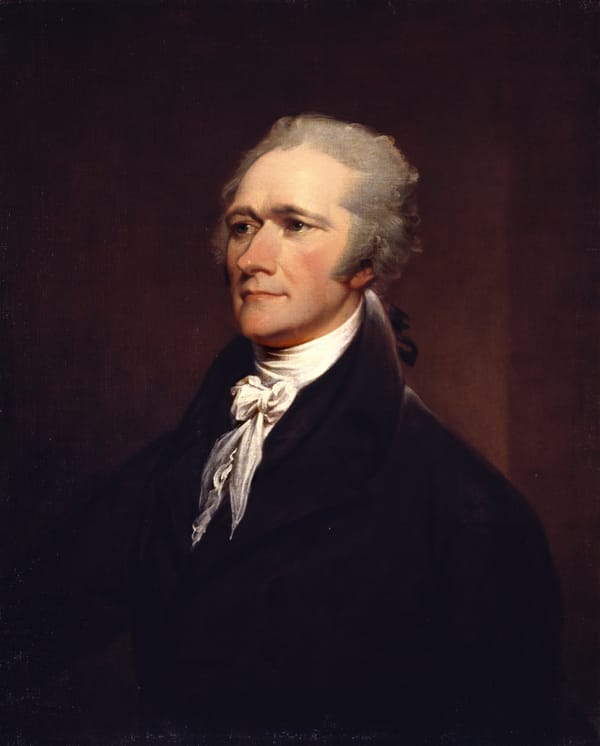The Powers of Congress

Welcome back to Constitutional Perspectives!
Last time, I canvassed the structure and composition of the United States Congress. Today I'll be looking instead at the powers of Congress. This will round out our examination of Article I, at least for the purposes of Level One. (There will, of course, be much more to say later.)
I mentioned in my sketch of the entire constitutional scheme that whereas the state legislatures have what we call plenary lawmaking power, Congress has only limited and enumerated powers. These are, for the most part, listed in Article I, Section 8, though stray other parts of the text also grant various powers to Congress. I am not going to discuss all eighteen of the Section 8 enumerated powers in any depth here; many of them are quite niche. But I want to give an overview of the most significant ones, and thus of the overall shape of federal lawmaking power.
The Taxing and Spending Power
Section 8, Clause One gives Congress the power to "lay and collect Taxes, Duties, Imposts and Excises, to pay the Debts and provide for the common Defence and general Welfare of the United States." You may recall that the lack of a national taxing power was one of the chief defects of the Articles of Confederation. Appropriately, then, the Constitution wastes little time giving Congress just such a power.
In a way this power seems straightforward enough, but there is a wrinkle. Although by its terms it only gives Congress the power to raise money, it has been understood over the centuries also to authorize spending that money. It need not have been read that way; it could have been that Congress can levy taxes only to pay for spending elsewhere authorized. Instead, Congress can spend money on basically anything it wants, anything it considers in the national interest.
This is a huge chunk of what the federal government does. Congress can, more or less without limitation, decide that the government is going to spend a bunch of money on some project, and that everyone has to contribute to funding that project (i.e. pay their taxes).
There is another way for Congress to fund government projects, of course: under Clause Two, it can "borrow Money on the credit of the United States." As those of you who have seen the musical Hamilton will know, strengthening the national credit was another of the Constitution's key goals. And it has been spectacularly successful in this endeavor: United States government debt is today the safest financial instrument in the world, and has therefore acquired a systemic importance in the world financial system.
In the early days of the Republic, and for a long time thereafter, Congress would authorize every single bond issue by statute. During the First World War, however, Congress innovated by authorizing the Treasury to issue debt as needed to fund the government up to a certain amount. This is what we know today as the debt ceiling. When you hear someone call to "abolish the debt ceiling," that would mean Congress authorizing the issuance of enough debt to fund the government, with no numerical cap.
The Commerce Power
Next up we have Section 8, Clause Three: the Commerce Clause, which allows Congress to "regulate Commerce with foreign Nations, and among the several States, and with the Indian Tribes." (Apologies for the antiquated language concerning Native Americans.) This is perhaps the most important of the enumerated powers; certainly it is the one that has generated the most legal controversy. For now, it is enough to say that, while the word "commerce" has a particular connotation to modern ears, its meaning in this clause is quite a bit more capacious. "Dealings" might sound more natural today; the word used in old Supreme Court cases is "intercourse."
What this means, at an absolute minimum, is that Congress can regulate basically anything that crosses a state or national border. The way I like to picture this is to imagine a thin, invisible film running along all of these boundary lines. When you pass through this film, you are briefly subject to the undivided, plenary power of Congress. The power that Congress has along these boundaries is very much like the power that states have within their territories. Now, it makes sense for Congress to have this power, because if something takes place across multiple states, then no one state has a clear claim of authority over it. It is hard to imagine a workable federal system without something like the Commerce Clause.
Particularly as modern life has become more and more interconnected, though, this power has become enormously important. Essentially every federal economic regulation traces itself back to the Commerce Clause; the Fair Labor Standards Act, for example, imposes minimum wage and maximum hours rules on all employers who participate in interstate commerce (which, these days, means basically all of them). It is not surprising, then, that it has been the locus of so very much controversy over the years. In my view, as I will explain later on in this series, most of this controversy is extremely silly, because the absolute bare minimum extent of the Commerce power suffices to do basically anything Congress might want to do with it.
Most of the legal controversy about the Commerce Clause pertains to the power over interstate commerce, but notice as well that it includes commerce (i.e. dealings) with foreign nations. This is a general foreign affairs power. It gives Congress power, not only over individuals or entities who enter or exit the country, but also over our relations with foreign governments themselves. Bear this in mind the next time you hear someone say that the president has exclusive power over foreign affairs: it's simply not true.
Finally, the Commerce Clause covers dealings with the Native tribes. This was enormously important in the early Republic, somewhat less so now. To be honest I don't know a ton about Indian law (again, my apologies, that's just what the field is called). From my perspective as a generalist, the most interesting thing about the Indian Commerce Clause is that it's the most explicit statement of the constitutional relationship between the United States and the Tribes: they are treated as foreign sovereignties.
The War Powers
The next few clauses don't have much of a coherent through-line. They each confer some narrow power over a niche subject matter. Naturalization! Bankruptcy! Coining money! Counterfeiters! Post office! Patents! Inferior courts!
But then, beginning with Clause Ten and running through Clause Sixteen, we get a series of powers all relating to war. Of these, the most storied and controversial is without a doubt the power, given by Clause Eleven, to "declare War." This has been increasingly a focus of theoretical debate as the most recent formal declaration of war – in World War Two – drifts further and further into the past.
The rest of Clause Eleven, along with Clause Ten, deals with piracy and privateering: the latter allowing Congress to punish piracy and other crimes on the high seas, or offenses against the law of nations; the former allowing it to "grant Letters of Marque and Reprisal" i.e. to authorize privateering on America's behalf.
Clauses Twelve, Thirteen, and Fourteen all deal with funding and maintaining the nation's armed forces. Twelve allows Congress to "raise Armies," subject to the proviso that no appropriation for this purpose can last longer than two years. Thirteen, by contrast, simply allows Congress to "provide and maintain a Navy." (Why the difference? Basically because the Founders believed that land-based armies were a far greater threat to liberty than navies.) Fourteen then lets Congress "make Rules for the Government and Regulation of" the armed forces.
Fifteen and Sixteen are known as the Militia Clauses. The first of these allows Congress to "provide for calling forth the Militia to execute the Laws of the Union, suppress Insurrections and repel Invasions." The second allows it to "provide for organizing, arming, and disciplining, the Militia, and for governing such Part of them as may be employed in the Service of the United States," though reserving the power of appointing officers and of training the militia to the states.
To our modern ears, it might sound like these clauses refer to the National Guard. In actuality, though, at the time of the Founding the militia was understood more broadly. It included all able-bodied adult male citizens: basically, the entire fighting force of the community. The militia was a central concept of Founding-era republican thought, though history has not been kind to the idea. I am not much of an expert on the Militia Clauses, but they reflect an intricate design that, in 1787, seemed a key piece of the federal-state relation.
The Territories Power
Clause Seventeen provides for Congress to have power over the seat of the federal government: a "District (not exceeding ten Miles square)" to be formed by the cessation of territory by one or more states. In fact that capital district, the District of Columbia, was formed by cessation from Maryland and Virginia, although the Virginia section (Arlington) was later retrocessed and is again part of Virginia.
Within this district, Congress can "exercise exclusive Legislation in all Cases whatsoever." In other words, Congress has plenary power over Washington, D.C. It stands in the same relation to D.C. that state legislatures stand as to their states. The municipal government in D.C. exists only because Congress created it by statute, and Congress can and does override the local government when it feels so inclined.
The same power, per Article IV, Section Three, Clause Two, extends also to "the Territory or other Property belonging to the United States." The territories are, well, all the territory that is part of the country but not part of any state. For the first hundred years after the Constitution was adopted, there was a steady sequence in which lands on the western frontier were annexed, formed into territories, and then eventually admitted to the Union as states.
Today, that process having long since completed, the federal territories are a handful of overseas holdings dating to America's imperial era around the turn of the twentieth century: Puerto Rico, Guam, American Samoa, the U.S. Virgin Islands, and the Northern Mariana Islands. As with D.C., Congress has plenary power over these territories. They all have some manner of home rule, but only because Congress allows it.
Finally, the "other Property" belonging to the federal government covers things like federal buildings. Courthouses, army bases (those are actually mentioned explicitly in Clause Seventeen), you name it. If you kill someone in a federal building, it's a federal crime. In fact, this is one of the main ways to commit a federal crime, the other being of course to cross a state line.
The Necessary and Proper Clause
Finally, we come to Article I, Section Eight, Clause Eighteen: the Necessary and Proper Clause. Congress has the power, it tells us, to "make all Laws which shall be necessary and proper for carrying into Execution" the other enumerated powers. I said above that the Commerce Clause has been the subject of the most legal controversy. But it is the Necessary and Proper Clause that has most engaged the imagination of those who fear overbearing federal power. During the ratification debates, Antifederalists charged that this language would allow Congress to do basically anything it wanted, subverting the entire scheme of enumerated powers; thus they dubbed it the "Sweeping Clause."
The theoretical questions swirling around this Clause are some of the most important in the annals of American constitutional law. I will be examining these questions at length in Level Two of this series. Accordingly, I am going to say next to nothing about them right now. It is enough to say that, although the device of enumeration is meant as a limit on Congress, the enumerated powers themselves are open-ended, and this creates a bit of a Puzzle.
Finally, it is worth noting that the Necessary and Proper Clause covers not only the other enumerated powers of Congress, but also "all other Powers vested by this Constitution in the Government of the United States, or in any Department or Officer thereof." This gives Congress considerable authority to organize and empower the other branches of government. This aspect of the Clause has never been nearly so theoretically vexed as the first part.
That's all for now on the powers of Congress. Next time I will be covering Article II and the presidency!

